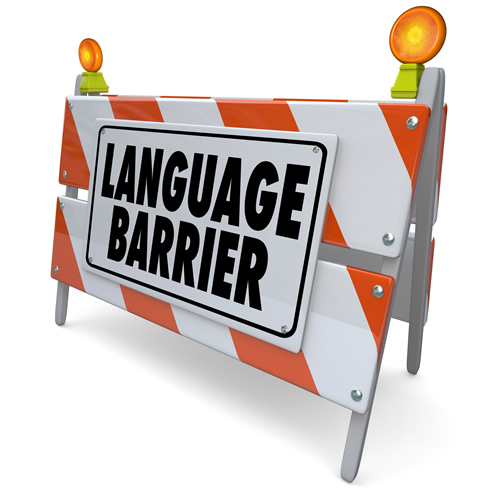As a green card lawyer, I’ve met too many married immigrant couples who take the permanent residence process too lightly.

They think, “We’re legitimately married, so why worry?”
Not so fast.
Marriage, alone, is no guarantee of immigration success.
Sure, marriage is one of the quickest routes to earning legal residency.
However, there are several potential pitfalls on the way to green card happiness.
The Eight Most Common Problems Faced By Couples Trying To Win Green Cards Through Marriage
Here’s a list of the most frequent eight stumbling blocks if you’re trying to become a permanent resident through your U.S. citizen wife or husband.
- Is Your Marriage “Real”?
- Is Your Marriage “Legal”?
- Do You Understand What Being Out Of Status Means?
- Do You Know How Criminal Records Affect Your Green Card Application?
- Do You Meet The Affidavit Of Support Requirements For Green Card Marriages?
- Are You Using Selective Memory To Forget Information?
- Did You Submit Sufficient Supporting Evidence Of Your Marriage-Based Green Card Application?
- Are You Prepared For Your Marriage Green Card Interview?
- Conclusion: Don’t Underestimate The Marriage Green Card Process
1. Is Your Marriage “Real”?
Rule number one. The Bona Fide requirement.
The marriage between you and your spouse needs to be real.
This means you married for love.
In other words, do not get married for the purpose of receiving a green card or evading any provisions of immigration law.
Seems obvious, doesn’t it?

The government takes green card marriage fraud seriously. Even in cases which seem simple. Like that of Raul, a U.S. citizen, and Sophia, a couple in their early 30s.
They met in high school and married in their early 20s. They had five children. One day, Sophia was stopped for a traffic violation. Immigration officials, called by the local police officers, took her into custody. The government filed deportation charges.
Sophia entered the U.S. nearly 15 years before she met Raul. Her father, a permanent resident, filed papers for her when she was a small child. After her parents divorced, he failed to process her green card application.
At first glance, the path to Sophia’s permanent residence status seemed straight-forward. Yet, USCIS questioned if their marriage was bona fide.
To the government, since Raul did not file a family-based visa petition until Sophia was arrested, his actions seemed suspicious. They challenged him to prove his sponsorship of green card marriage application was not simply to help her evade removal from the United States.
Anyone who attempts a sham marriage for immigration benefits is foolish.
Marriage fraud is a federal crime. Each spouse is subject to being sentenced to prison and assessed a hefty fine. Moreover, the immigrant spouse will be deported and banned from the U.S. for not less than 10 years, and most likely for life.
2. Is Your Marriage “Legal”?
Some couples think a marriage certificate is all they need to prove they’re legally married.
Not always.
The requirement that a marriage must be legal means:
- Both parties are free to marry
- All prior divorces have been officially completed
- The marriage is recognized as legal in the country where it took place
Take Rosalinda, a woman who recently visited my Riverside immigration office to discuss her deportation case. She had married her husband six years ago. However, her adjustment of status application was denied.
Although she had divorced her first husband, she did not complete the divorce process until 10 months after she had married her current husband. She was seeking a green card as a spouse of a U.S. citizen. Her late divorce nullified her marriage status. This meant her green card marriage I-130 petition was invalid.
In a different matter, Charles had divorced his first wife over 25 years ago in the Dominican Republic.
He filed papers to immigrate his second wife from Argentina.
He had never followed up on the last steps necessary to finish his divorce. He went to court for a final divorce hearing. But he did not submit the written judgment for certification and approval from the court.
Similar to Rosalinda, Charles’ second wife was placed in removal proceedings at immigration court.
Their efforts to obtain a marriage-based green card also fizzled because their marriage was not legal.
3. Do You Understand What Being Out Of Status Means?
Generally, when you are out of status, it means the time you spend in the U.S. is unlawful.
Being out of status happens two ways:
- Entering without inspection
- Overstaying your visa
Did You Enter The U.S. With Or Without Inspection?
If you’re the immigrant spouse, this is a hugely important question.
How you entered determines where your green card through marriage interview will take place.
Some immigrants are interviewed in the United States. This is known as adjustment of status. The appointment occurs at a local U.S. Citizenship and Immigration Services office.
Other spouses are required to attend an interview in their home country. This is called consular processing.
You are able to seek adjustment of status if you entered legally. (This possibility takes place most often when you are the spouse of a U.S. citizen. Spouses of permanent residents qualify for this opportunity less often.)
The few exceptions to this rule are tricky. If you entered without inspection, you should be careful to double-check if these exceptions protect you before you file a permanent residency application.
Many immigrant husband and wives, required to return home for their green card marriage interview, must seek a family unity I-601 hardship waiver. If the waiver is not granted, they will not be allowed to legally reenter the United States.
Are You An Overstay?
When you enter the United States legally on a temporary visa, you are required to leave before your visa expires.
If you have lived in the U.S. past your departure date, you are out of status.
Again, there are some exceptions to the general rule. But you need to be extra cautious when using one of them as a basis for filing a permanent residence application.
Do You Have An Unlawful Presence Problem?
In some instances, filing a green card through marriage application will cure the problems of entering without inspection or overstaying a visa.
Other times, these issues can cause a marriage-based green card application to be denied.
Upon denial, the immigrant spouse will likely be referred to immigration court and placed in removal proceedings to face deportation charges.
in short, if you have been out of legal status, your spousal green card has to be carefully prepared.
Otherwise, a simple mistake could turn your permanent residence dream into a deportation nightmare.
4. Do You Know How Criminal Records Affect Your Green Card Application?
On the surface, this pointer seems unnecessary.
If you have been charged with having committed any crimes or convicted of any offenses, you may not be eligible for a green card.
There’s more to this warning.
Even the mere act of participating in certain activities, without any criminal charges having been filed, may still disqualify you for becoming a permanent resident.
Moreover, some permanent residency seekers think short police detentions, sealed criminal records, or expunged misdemeanors do not need to be disclosed. As a result, they omit this information from their green card applications.
Unfortunately, they’re wrong.
Minor crimes can cause major immigration problems.
Prior to your green card marriage interview, you’re sent to a biometrics appointment. The government runs a criminal background check based on your fingerprints. At the time of your interview, the officer already knows most of your criminal and arrest history.
Worse, the failure to list such information can lead to the denial of their applications or allegations of immigration fraud.
All arrests, citations, detentions, or encounters with law enforcement officers anywhere in the world must be disclosed on the application. The only exceptions are pure traffic violations like parking or speeding tickets.
Don’t let any of these matters trip you up.
If you have fears about your criminal records, you should probably consult with an deportation expert about such matters.
The extra precaution may be the saving grace for your marriage-based permanent residence application.
5. Do You Meet The Affidavit Of Support Requirements For Green Card Marriages?

Many marriage green card applicants underestimate the significance of the affidavit of support.
Don’t be one of them.
Essentially, the affidavit of support is a contract between your spouse and the government.
Before approving your request for a green card, immigrant officials want to ensure that the sponsoring U.S. spouse has the financial ability to support the immigrant spouse for the next ten years.
In other words, the U.S. government does not want new permanent residents to become “public charges” and use public resources like welfare, subsidized housing, and food stamps.
The most common problem is that the sponsoring spouse does not provide the government with sufficient documentation to to verify his financial situation. This includes tax returns, W-2s, IRS transcripts, and employer verification letters.
In some cases, issues arise because the U.S. sponsor has not filed past tax returns, has filed fraudulent tax returns, or is self-employed with scanty records. These often require the assistance of a tax consultant, which imposes a temporary halt to the green card through marriage process until such problems are corrected.
In other situations, a sponsor may not earn enough to meet the affidavit of support financial requirements. This problem can usually be solved with the help of a joint sponsor, like a family relative, close friend, or employer, who files a supplemental affidavit of support on behalf of the immigrant spouse.
BATARA IMMIGRATION LAW INSIGHTS
Nine Affidavit Of Support Keys To Permanent Residence Success
6. Are You Using Selective Memory To Forget Information?
There are two types of memory problems which arise in green card marriage immigration cases.
The first type is innocent. And easy to correct.
Don’t guess.
If you don’t know the answer to a question, your guess will often make matters worse. An officer reviewing your application may think your innocent guess is a deliberate falsehood.
On the other hand, a guess may provide an answer which disqualifies you from winning permanent residence.
It is perfectly okay to say that you do not remember something. An honest “I don’t recall” is better than a wild guess.
The second type of selective memory is not innocent.

Some clients believe that by not revealing everything, they help their cases
They’re wrong.
I’ve interviewed potential clients who claim they cannot remember details related to answering questions in their applications. Slowly but surely, their explanations unravel. In such situations, it is pretty clear details are not being recalled in a selective manner.
If I can sense this behavior, so can immigration agents trained to spot inconsistencies.
There is no positive benefit for taking this approach.
When immigrants deliberately decide to not disclose full or accurate details, they’re usually trying to paint a picture which they think an officer wants to see.
Many times, the issues which are not fully explained are relatively unimportant.
The true answer, with complete details, will not harm the green card seeker’s effort to become a permanent resident.
USCIS examiners will often forgive that you worked without permission, committed a minor crime, or overstayed your visa.
On the other hand, selective recall may cause you more harm than good.
Little white lies, convenient omissions, exaggerated descriptions paint a negative picture of your willingness to tell the truth – which causes the interviewing officer to doubt other information you provided.
Often, when such flawed information is spotted, clients will be called to attend an-depth questioning session, called a Stokes interview, in which the couple is separated and then asked a series of questions.
This can lead to the denial of your application, or worse, cause your deportation.
7. Did You Submit Sufficient Supporting Evidence Of Your Marriage-Based Green Card Application?
By “sufficient” supporting evidence, I mean two things.
First, did you submit enough documents to prove the legitimacy of your marriage and qualifications for a green card?
Second, did you file the proper types of supporting materials?
Normally, if there is a deficiency, the government will send you a notice requesting more evidence. This is called a Request For Evidence (RFE).
By issuing an Request For Evidence, the government tells you what specific documents they want to review. Therefore, responding to the RFE in a thorough manner is critical to your success.
Usually, the types of documents requested are “basic” evidence like birth certificates, passports, entry papers, visas, name changes, marriage certificates, naturalization certificates, divorce decrees, tax records, police records, court orders, and prior immigration filings.
At times, the RFE may seek certain evidence because you mistakenly gave a wrong answer on your application. In essence, it helps you spot mistakes.
Explaining these errors at the RFE stage help your green card marriage interview go smoother, improving your chances for success.
8. Are You Prepared For Your Marriage Green Card Interview?
Do not take getting ready for your green card marriage interview lightly.
Dress For Success
This starts with your dress. I tell my clients to dress neatly, as if they were going for an office job interview or a special church event. Remember interviewers are people too, and first impressions count.
Arrive Early
Do everything possible to avoid being late. This begins a day or two before your interview. If you’re not familiar with the USCIS office location, map out the drive in advance. Take a test drive so you can figure out if you’ll need extra traveling time.
Sometimes, being late is unavoidable. Perhaps there was a car accident which delayed traffic for a long time. By planning ahead, you reduce this risk.
If you’re late to the interview, the government may deem your tardiness as an absence. Your absence may be classified as an abandonment of your permanent resident application.
Bring Original Documents And Translations
Even if you responded to a Request For Evidence, you are still required to bring original copies of documents you submitted with your application. You will asked for certified copies of marriage certificates, divorce certificates, naturalization certificates, birth certificates, and records like your passport or I-94 card.
If any documents are not in English, bring their official translations.
Bring A Translator
If your do not speak fluent English, you should probably take a competent translator with you.
At your green card through marriage interview, your U.S. spouse cannot interpret for you. Neither can your lawyer.
Do not just bring a relative or friend who speaks both languages. You need a competent translator.
There is a possibility that you may not understand some questions asked by the USCIS officer. Similarly, the agent may not comprehend your responses. These types of misunderstandings are not uncommon.
The officer might think you’re being dishonest or hiding something. This, of course, can lead to the denial of your application for permanent resident benefits.
By bringing a qualified translator, you can avoid such stumbling blocks.

I’ve had several clients who refuse to pay for a qualified interpreter. They underestimate the danger of potential cultural and language misunderstandings, which can lead to bigger problems and costs.
I tell them about a former San Bernardino client of mine, Jimmy, who was born in China. When I reviewed his green card application papers, it was clear that they were poorly prepared. He had payed a Chinese immigration assistant a substantial sum of money, but could not locate the individual.
Shortly after his adjustment of status application had been submitted, his assistant closed shop.
After interviewing Jimmy, I learned he was the victim of immigration fraud. The assistant took advantage of him. Jimmy’s comprehension of the legal technicalities was limited.
He thought his green card application based on marriage to a U.S. spouse was in order. It was seriously flawed.
I encouraged him to hire a certified interpreter.
At the interview, the translator made the difference. Jimmy’s application was denied. But the officer realized he had been duped. He understood Jimmy and his wife were victims of a con artist.
As a result, Jimmy was not placed in deportation proceedings. Instead, the officer gave him the chance to refile a new green card through marriage application with accurate information.
In my view, paying for a certified translator is worth the risk of having your immigration hopes and dreams destroyed forever.
Bring Joint Ownership Evidence
Most couples who enter into a serious marriage will share their assets and liabilities. As a result, immigration agents look closely at joint ownership records. Items like rental records, utility statements, insurance policies, bank accounts, telephone bills, and tax records are reviewed to determine if the immigrant and U.S. spouse are handling their affairs as a married couple or as individuals.
Knowledge Of Your Spouse’s Family
This is another tell-tale sign of a bona fide marriage. Have you met your spouse’s family members?
Pictures of wedding receptions, holiday parties, and family gatherings are important proof of a legitimate marriage.
Sometimes, when one spouse’s parents live far away, they cannot afford to travel to the U.S. for a wedding. In these instances, government officers sometimes ask for congratulation letters, birthday cards, or holiday greetings sent to or from the distant relatives.
Recently, a Polish client brought a video of her marriage, in which her parents participated long distance via Skype to her interview. The government agent, to say the least, did not question the legitimacy of her marriage green card efforts.
Conclusion: Don’t Underestimate The Marriage Green Card Process
As noted at the outset, I’ve met many married couples who underestimate the difficulty of the marriage green card process.
There are several stumbling blocks on the path to winning your permanent residency case.
If any of the above questions worry you, why take unnecessary risks? To be on the safe side, you should seek legal counsel familiar with green card issues before filing an application.
Ready to take a serious and honest look at the strengths and weaknesses of your immigration case? Let’s get started with a personalized strategy and planning session . . .




